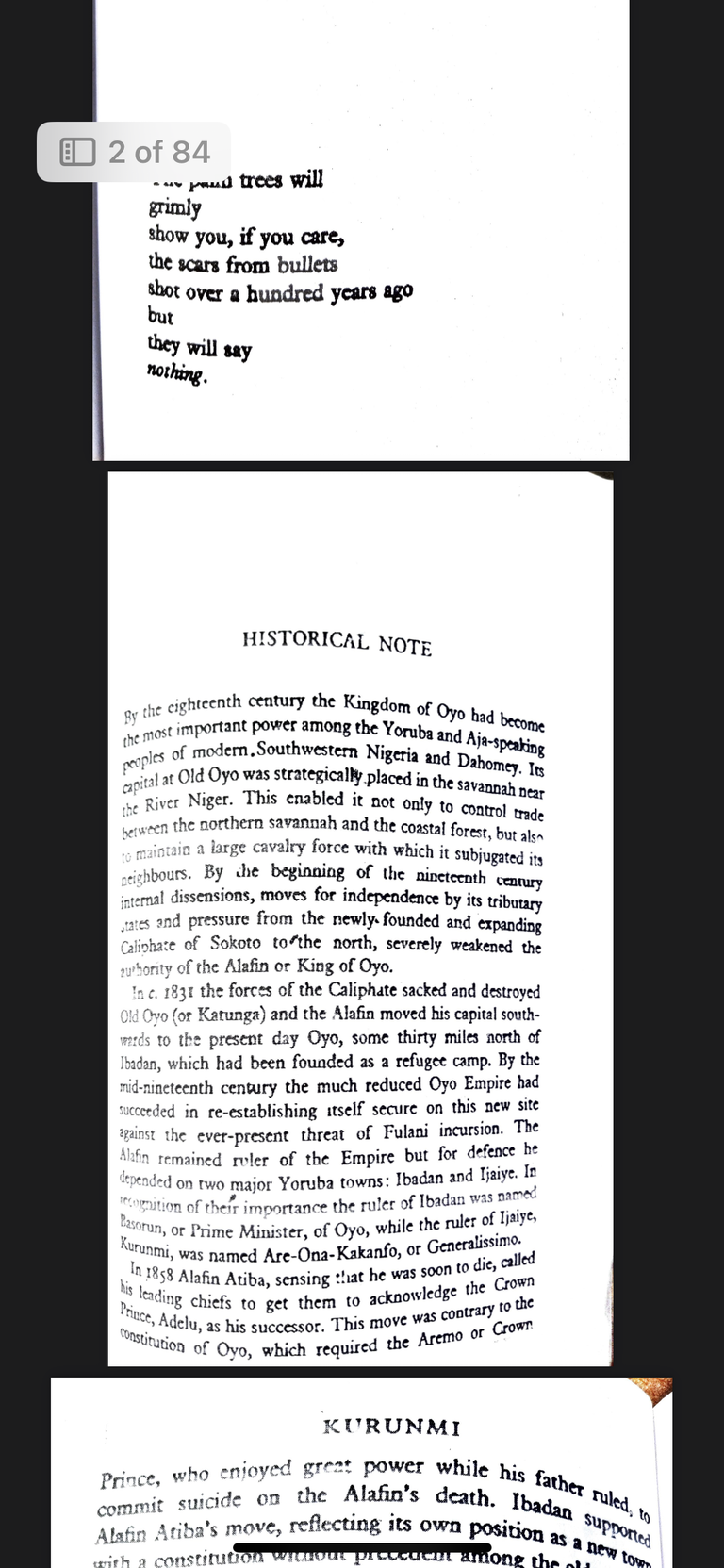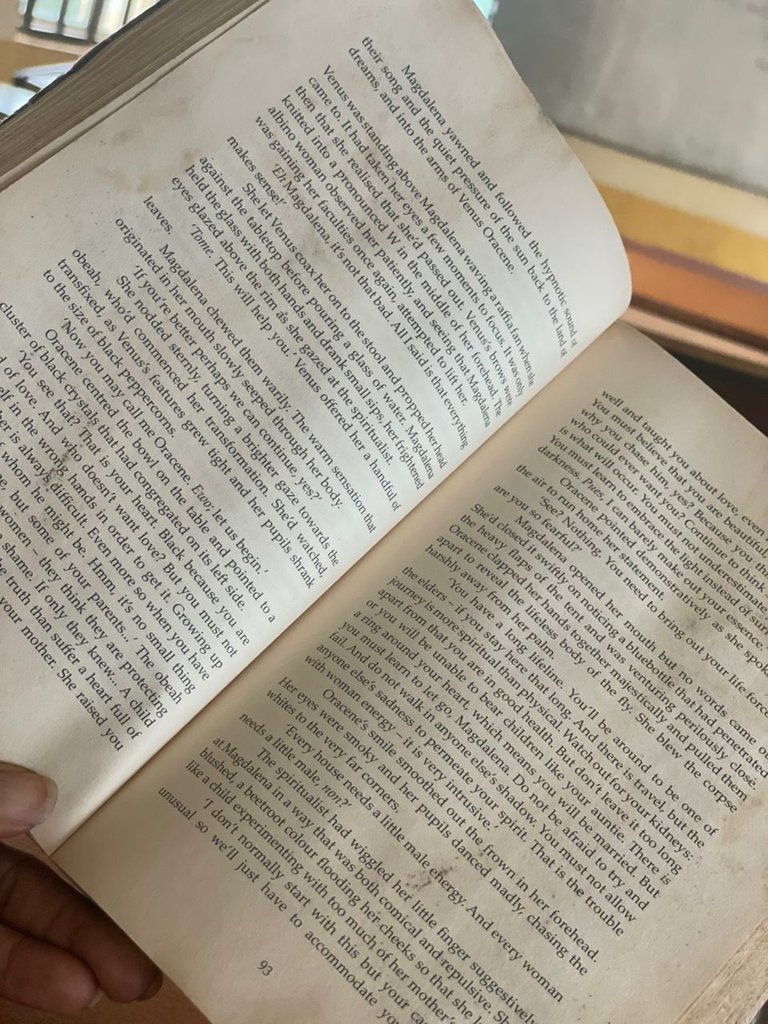Book Review: Kurunmi By Ola Rotimi

Ever since I read Not That Woman by Tosin-Jobi Tume, I have been hooked on the world of drama. Out of the three genres of literature, drama is my least favorite. I love reading beautiful works by talented writers, whether it is prose, poetry, or drama. However, my preference is for prose and poetry over plays. My reading interests shift depending on my mood, but right now, play texts are what I’m interested in. I'm on a mission to explore and devour any play text that comes my way. As a reader who is looking for books to devour, my friend, who is also a book lover, sent me 7 plays by African writers. I have read 1 out of the six books. Meaning, I have 6 fresh books sleeping peacefully in my E-library, waiting to be devoured.
One of those books is Kurunmi by Ola Rotimi. Usually, the main reason that attracts me to a book is its title. I love catchy and creative titles. However, this was not the case with this book. In the case of Kurunmi, the author attracted me. I have always been a fan of Ola Rotimi’s works. The first time I read one of his plays was during my high school days- The Gods Are Not to Blame. Some of his other works that I have read are; Our Husband Has Gone Mad Again and Hopes of the Living Dead. These books are loaded with many African resources.

Kurunmi was written by Ola Rotimi. Ola Rotimi is one of the giant dramatists who has written his name in permanent ink in the world of Nigerian Literature. Kurunmi by Ola Rotimi was first produced in 1969 and published in 1971. One important thing to take note of is that this book is a historical tragedy. In simple words, the characters, settings, and to some extent, dialogue, are based on actual events. The play is based on the events that happened in the war between the Ibadan and Ijaye people.

Kurunmi, the eponymous character, is a skilled and experienced warrior. In the history of Yorubaland, he is the greatest warrior and strategist in the 18th century. Due to his battle wits and power, he becomes the Aare Ona Kakanfo- the military commander in the Old Oyo empire. He was bestowed this position by the Alaafin of Oyo. Kurunmi later becomes the leader of Ijaye, one of the towns in Oyo.
The reigning king, Atiba, falls sick. Seeing that he is going to die soon, calls a meeting of the regional leaders to persuade them to agree to his plan for Prince Adele, his son, to rule after his demise. However, this goes against the Oyo Empire rule that the Alaafin’s son (in this case, Prince Adele) must commit suicide to accompany his father to the other realm. The regional leaders under Ibadan support this idea, but on the other hand, Kurunmi who is a man of tradition and custom, strongly opposes this idea. This move by the Alaafin, ignites a war between the Ibadan people and the Ijaye people, under the rule of Kurunmi.
Despite the advice from Europeans to back out of the war, Kurunmi remains strong-headed. Even when his people beg him, and even when his three sons die, he still remains stubborn. Unfortunately, this leads to his death and downfall. Should Kurunmi have given up on his tradition instead of starting the war?

Kurunmi by Ola Rotimi fits into the provisional (temporary) definition of African drama. It has its origin in Africa, utilizes African cultural resources, and it also deals with African issues such as leadership and foreign interference. Having established that Kurunmi fits perfectly into the provisional definition of African drama, one of the reasons I liked the book is that it sheds light on important events in Yoruba culture. One of the benefits of literature is that it helps preserve culture. Through Kurunmi by Ola Rotimi, New generations to come can read and learn about Kurumi and the Ibadan-Ijaye war.
Ola Rotimi uses simple, yet rich language in his work. Although he uses his indigenous language, Yoruba, he provides translations in the book, which makes it easier for others who do not understand the Yoruba language to bypass the language differences. One common element in Ola Rotimi’s works is the use of songs. This makes his works easier and more interesting to read. Another playwright who is known for their use of songs is Femi Osofisan, the author of Once Upon Four Robbers.
Also, the plot is simple and chronological. I give this book a 3.5 out of 5. I highly recommend this book to all book lovers, especially those who enjoy learning about other cultures.
Note: Thumbnail designed using Canva.
Thanks for reading.
Posted Using InLeo Alpha
Posted Using InLeo Alpha
“Kurunmi” sounds like a fascinating work, especially for its connection to Yoruba history and culture. Good luck with those six books you have in your e-library!
Hello there, friend. Thank you so much. The goal is to devour all six of them.